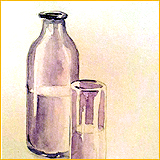| Mental Health Tips | |
| Common Mental Problems | |
| Substance Misuse | |
| Treatment of Mental Disorders | |
| Mental Health Education Pamphlets | |
 Insomnia
Insomnia
(Special thanks to Dr Bonnie Siu of Castle Peak Hospital for authoring this article)
Insomnia is a common problem in the society. A good sleep helps to restore our energy and cognitive function. Before proceeding to the definition of insomnia, let’s discuss the sleep cycle first:
1. A sleep cycle
2. The importance of sleep
3. What is insomnia?
4. Causes of insomnia
5. Effects of insomnia
6. Sleep hygiene
1. A sleep cycle
Sleep can be divided into two phases: rapid eye movement sleep (REM Sleep) and non-rapid eye movement sleep (Non-REM Sleep). On the other hand, non-REM sleep can be divided into 4 Stages: Stage 1, Stage 2, Stage 3 and Stage 4. Stages 1 and 2 are called “light sleep” whereas Stages 3 and 4 are called “deep sleep”. For a normal general adult, REM sleep constitutes 20% to 25% of a sleep cycle whereas the remainder is the Non-REM sleep.
Sleep starts from light sleep of the non-REM sleep, then deep sleep of non-REM sleep, followed by REM sleep. This cycle of different phases of sleep is called a sleep cycle. A sleep cycle lasts from 90 to 120 minutes. Usually, a general adult has 4 to 6 sleep cycles per night.
2. The importance of sleep:
The importance of sleep cannot be denied and every sleep stage has its own function. Non-REM sleep helps to repair the cells of our body and ensure that our body has enough rest in order to face the challenges in life the next day. On the other hand, REM sleep helps to process the information we learnt and helps to reinforce our memory and learning ability. Therefore, a good sleep can ensure that we are healthy both physically and psychologically in order to keep ourselves in an optimal function and to keep ourselves in good mood.
3. What is insomnia?
Insomnia is a type of sleep disorder. According to DSM-IV of the American Psychiatric Association, there are two major criteria in diagnosing sleep disorders: 1. Sleeping problems persist for more than 1 month; 2. Sleeping problems bring about anxiety, tiredness, and worries or resulted in deterioration of work function and role damage. On the other hand, ICD-10 of the World Health Organization defines insomnia as follows:
- Difficulty in getting off to sleep and the maintenance of sleep and unsatisfactory sleep quality
- Sleeping problems occur at least 3 nights per week and, last for at least 1 month
- Thinking of the effect of insomnia throughout the day
- Sleeping problems bring about distress in the sufferer and affect his/ her daily living
Different researchers and studies define insomnia in different ways. Insomnia can be broadly divided into 4 types:
- Difficulty in sleep onset
The sufferer has difficulty in getting off to sleep while in bed and needs more than 30 minutes for sleep onset. The sufferer will become anxious, restless and worried. This is common in people having anxiety disorders. - Difficulty in maintenance of sleep
The sufferer has intermittent, shallow sleep. - Unrefreshed after sleep
The sufferer still feels tired when wakes up, as if he/ she has not slept the previous night. - Early morning wakening
The sufferer wakes up 1 to 2 hours earlier than his/ her usual wake up time and could not fall asleep again. This phenomenon occurs for more than 3 nights per week and the sufferer feels tired, sleepy, moody, and irritable during daytime. This is common in people suffering from endogenous depression.
4. Causes of insomnia
There are two major causes of insomnia: Primary insomnia and secondary insomnia. The causes of secondary insomnia include: mental and mood disorders, physical illnesses, substance abuse, and other sleep disorders. Research reveals that the prevalence of insomnia increases with age. For people aged 70 years or above, the rate of insomnia amounts to 35%. Insomnia is more prevalent in females than in males.
5. Effects of insomnia
Occasional insomnia will not cause great harm to the body. However, if the insomnia persists, it can bring about adverse effects on the physical and psychological health of the sufferer. It can affect the quality of life, cognitive function, memory, and the work function of the sufferer and can impose substantial socioeconomic burden to the society.
6. Sleep hygiene
Sleep hygiene can help to fight against insomnia:
- Go to bed and get up at a regular time
- Decrease the time spent in daytime sleep/ nap
- Do more exercises but avoid rigorous exercises just before sleep
- A comfortable sleeping environment including comfortable bed sheet and pillow, a quiet and dim environment, an appropriate room temperature are all important for sleep
- Drink a cup of warm milk can help to promote sleep
- Avoid being too hungry or too full before sleep
- Avoid drinking too much water and avoid drinking coffee or tea or alcohol before sleep
- Relaxing activities including listening to soft music, reading books, doing relaxation exercises and having a warm bath can help to promote sleep
- Apart from sleeping, do not stay in bed
- If having things unfinished or problems unresolved before sleep, do not think about them again and again. Can consider writing the things down and arrange time to do them again the next day
- Turn off the light when go to bed
- Do not read, watch television , listen to music while in bed
- If sleep does not occur 20 minutes after going to bed, wake up and go to bed again if you feel sleepy again
- Repeat the above if waking up for more than 20 minutes in the middle of night
- No matter the quality of sleep the previous night was, wake up at a particular time the next morning
- Avoid staying in bed during the daytime
If the above methods (sleep hygiene) cannot help you to have a good sleep, you may need to consult a doctor.
Websites with relevant information / Reference
|
================================================================================ Thank you for browsing the mental health tips on the IMH internet. We would like to hear feedback from you through the questionnaire below. Your comments are most welcome for our continuous improvement. |
No. of visitors of this page: 8110


